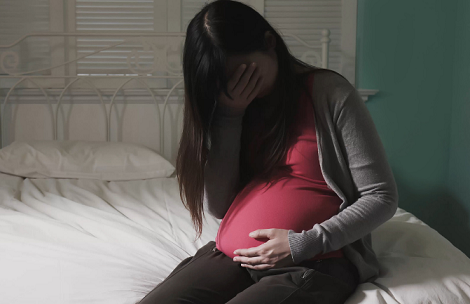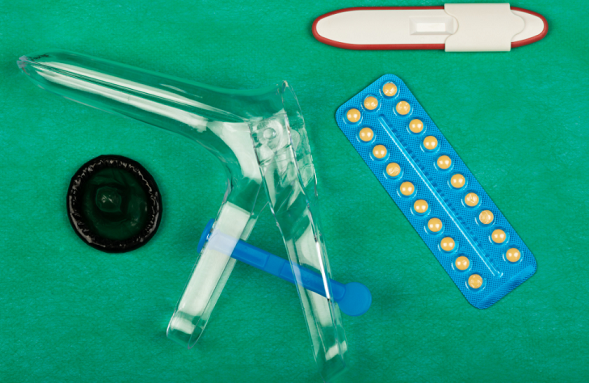
![]() Claire EssiMedicationApril 20, 2023
Claire EssiMedicationApril 20, 2023
Sex without the use of a condom is classified as unprotected sex, but if you did use a condom and it somehow broke, it still counts as unprotected sex.
Unprotected sex has a lot of risks associated with it, which especially include unwanted pregnancy. There are certain measures you can take to prevent the situation and Ampiclox is not in the equation.
This article discusses what Beecham Ampiclox medication is; its common uses and if it prevents pregnancy after unprotected sex. So if you are wondering just how effective Beecham Ampiclox is for emergency contraception, keep reading.

In Nigeria, ampiclox is sold as Beecham, which is the brand name. So, Nigerians combine the brand name with the generic name and refer to it as ‘Beecham Ampiclox’ or ‘Ampiclox Beecham’.
Ampiclox capsule is a formulation of two antibiotics; Ampillicin Trihydrate and Cloxacillin Sodium. It is an antibiotic for treating bacterial infections associated with the nose, throat, skin, ear, lungs, soft tissues, airways and bone.
Ampiclox is commonly called a ‘broad-spectrum’ antibiotic because it kills gram-negative bacteria, which are resistant to many drugs and most available antibiotics, and gram-positive bacteria that cause disease.
Ampiclox can be considered a semi-derivative of the penicillin drug. Ampicillin and cloxacillin are the active ingredients in Ampiclox which stops the growth of bacterial infection by killing the bacteria.
It can be administered through intramuscular means, intravenously or orally. Ampiclox is medically approved to treat infections which include;
Before taking Ampiclox medication, certain conditions and lifestyle practices should be considered:
Ampiclox medication, if prescribed, will not affect you when driving and is safe for children. However, the dose and duration may change according to the age of the child and the type/severity of the infection.

There is a popular misconception among people that taking a capsule of Ampiclox after unprotected sex prevents pregnancy. Many people advocate for the use of Ampiclox as an emergency contraceptive.
Although this is a common belief, scientific evidence for the effectiveness of antibiotics in preventing pregnancy does not exist.
Essentially, pregnancy occurs as a result of the union between the sperm and the egg. A woman is most fertile during the ovulation period and is very likely to get pregnant after unprotected sex during that time.
To prevent this, there are Emergency Contraception Pills (ECPs) that can be taken within 72 (3 days) to 120 hours (5 days) after unprotected sex, and are most effective when taken immediately.
ECPs are used after unprotected sex, coerced sex, sexual assault and contraceptive failure. ECPs prevent pregnancy by delaying ovulation, disrupting the fertilization process, or preventing the implantation of a fertilized egg in the uterus.
However, Beecham Ampiclox is an antibiotic and not an emergency contraception. Ampiclox is an antibiotic designed primarily to treat bacterial infections.
It is not listed among natural and non-hormonal methods to prevent pregnancy. Ampiclox is also not an Emergency Contraception Pill (ECP).
Due to ignorance or secrecy, many people may have the notion of using Ampiclox as an emergency pill and birth control method.
The fact that Ampiclox is widely available in many pharmacies in the country just compounds the problem even more.
The answer is no. Contrary to popular belief, Beecham Ampiclox does not prevent pregnancy after ovulation nor does it flush out sperm. It is an antibiotic that kills bacteria and eggs are not bacteria. Using Ampiclox to prevent pregnancy is doing your body system more harm than good.

Beecham Ampiclox is not effective for emergency contraception and it can be dangerous to use it in this manner. Ampiclox is not approved as emergency contraception and should not be administered as such.
Ampiclox is an antibiotic and using it for contraception or any other purpose for which it is not designed is drug misuse. One of the various risks and side effects of using Beecham Ampiclox for emergency contraception is antibiotic resistance.
Using antibiotics unnecessarily can contribute to antibiotic resistance. Germs that were initially responsive to antibiotics become resistant to it, thereby making it even harder to treat bacterial infections.
A 2022 study reveals that staphylococcus aureus showed resistance to ampicillin‐cloxacillin in Nigeria and that microbial resistance is a potential consequence of Ampiclox misuse.
Infections arising from bacterial resistance will most likely lead to adverse outcomes which include mortality, treatment failure, and reduced quality of life.
Furthermore, using Ampiclox as a contraceptive can decrease the efficacy of oral contraceptives that contain oestrogen.
It may also disrupt the absorption of other medications because of the effect it has on gastrointestinal flora.
Additionally, taking Beecham Ampiclox when it is not needed can cause side effects such as diarrhoea, nausea, vomiting, and allergic reactions.
Serious allergic reactions to Beecham Ampiclox are rare but can range from mild to severe. Mild allergic reactions may include skin rash, itching, and hives. More severe allergic reactions may include difficulty in breathing, and swelling of the face, lips, tongue, or throat.

Common side effects of Ampiclox include nausea, rashes, diarrhoea, headaches, vomiting and stomach pain.
Most of the time, these side effects do not need serious medical attention and will typically resolve after a few days.
However, consult a doctor or visit the nearest hospital if the side effects persist and are severe.

Although Beecham Ampiclox is not an effective form of emergency contraception, there are other alternative emergency contraception options to Beecham Ampiclox.
A common emergency contraception is the morning-after pill, which can be taken up to 72 hours after unprotected sex to prevent pregnancy.
There are two types of morning-after pills: progestin-only pills (such as Plan B) and combination pills (such as Ella). Both types work by preventing ovulation or delaying ovulation.
Another alternative emergency contraceptive is Postinor 2 which is tested, effective and approved as an emergency contraceptive. However, Postinor 2 should not be taken too much in a cycle.
Another option for emergency contraception is the copper intrauterine device (IUD) which is a small T-shaped device inserted into the uterus by a doctor or healthcare provider.
It can be used up to five days after unprotected sex and can also be used as a long-term form of birth control.
No research, source or drug agency has confirmed and approved Ampiclox as a contraceptive for pregnancy prevention. So any information advocating for the use of Ampiclox as a contraceptive should be disregarded.
Beecham Ampiclox has no potential as an emergency contraceptive and it is not a recommended or reliable method of preventing pregnancy.
If you are sexually active and concerned about unwanted pregnancy or other reproductive health issues, get expert medical advice from a Gynaecologist on KompleteCare who will help provide you with approved and safe methods.
Telemedicine comes in handy to give the right answer to a question like, Can Beecham Ampiclox prevent pregnancy after unprotected sex? Telemedicine has become something revolutionary in today’s quickly changing healthcare industry by enabling people to communicate with medical professionals from a distance. This creative strategy makes use of technology to improve the convenience and accessibility of medical services.
Telemedicine offers on the Kompletecare platform give you the means to access information on preventing unplanned pregnancy from unprotected. Telemedicine has made it easy, just from the comfort of your home; through telecommunication devices, you can get all the services you need. You neither need to queue on a waiting line nor have to travel away from home or with your new-born baby to get medical advice about your health.
Do not follow the programming and practice that Beecham Ampiclox prevents pregnancy after unprotected sex; speak with a doctor for the right advice.
1. What does Ampiclox Beecham do?
Beecham Ampiclox is an antibiotic drug that includes cloxacillin and ampicillin. It is frequently recommended as a treatment for bacterial infections of the ear, nose, throat, bones, lungs, and wounds from surgery. Although Ampiclox is useful against some bacterial illnesses, it does not shield you against infections.
2. Can Ampiclox help after unprotected sex?
Beecham Ampiclox cannot stop a pregnancy from occurring. Ampiclox is an antibacterial drug that combines cloxacillin and ampicillin. It is frequently applied to the treatment of different bacterial illnesses; it works well against both gram-positive and gram-negative bacteria. It is neither meant to be used as a means of pregnancy prevention, nor does it have any contraceptive properties.
3. Can I use antibiotics after sex to prevent pregnancy?
Antibiotics, however, cannot be used to avoid getting pregnant. Women should never take antibiotics after having intercourse.
4. What to take immediately after having unprotected sex to avoid pregnancy?
One strategy to avoid getting pregnant after unprotected sex is to use emergency contraception. Emergency contraceptive pills, also known as the “morning after pill,” are tablets that can be taken up to 120 hours (5 days) after engaging in unprotected sexual activity.
5. How do you cleanse your body after unprotected sex?
The safest method for cleaning the vagina and vulva after intercourse is to use warm water and unscented soap. Some suggest that peeing, bathing, taking a shower, or using vinegar can aid in the removal of semen. Nevertheless, there is no known scientific method for eliminating sperm once it has passed through the cervix.
6. What drug can I use to prevent pregnancy?
It has been demonstrated that levonorgestrel tablets, administered up to 72 hours (3 days) following unprotected sexual activity, are 89% effective. Much less than half of their workdays, or 72–120 hours, are spent working after sexual activity.
7. What antibiotics can I take after unprotected sex?
Previous research has shown indications that males who have sex with men may be less likely to have bacterial STIs if they take the antibiotic doxycycline soon after sex. Doxycycline postexposure prophylaxis, or doxy-PEP, is the term for this method of prevention.
8. What to drink after sex?
You can sip some water after sex.
It is a good idea to drink water after having sex, as it will help you urinate, especially as a woman. Staying hydrated by drinking water encourages increased urination, which flushes out more bacteria from your body, preventing the worsening of any diseases.
9. What are the disadvantages of Ampiclox?
Amipclox occasionally causes common adverse effects that include rashes, nausea, vomiting, and diarrhea. The majority of these adverse effects go away slowly and do not need to be treated by a doctor. If any of these side effects become chronic, you should consult your doctor.
10. How long does it take to get pregnant after sex?
The process of sperm and egg joining might take up to six days following sex; this process is known as fertilization. The fertilized egg begins its journey toward your uterus. About three to four days after fertilization, it enters your uterus and can remain there for a few more days.
References
Asaolu, I., Kram, N., Ajala, C., Aquaisua, E., Asaolu, A., Abuh, A., Bernand, M., & Ehiri, J. (2021). “Antibiotics Can Work as a Contraceptive:” Contraceptive Knowledge and Use Among University Students in Calabar, Nigeria. Frontiers in Reproductive Health, 3. https://doi.org/10.3389/frph.2021.665653
Ajayi, A.I., Nwokocha, E.E., Akpan, W. et al. Use of non-emergency contraceptive pills and concoctions as emergency contraception among Nigerian University students: results of a qualitative study. BMC Public Health 16, 1046 (2016). https://doi.org/10.1186/s12889-016-3707-4
Beecham Ampiclox. (n.d.). Drugs.com. Retrieved March 26, 2023, from https://www.drugs.com/international/beecham-ampiclox.html
Can Ampiclox Prevent pregnancy? – Public Health
publichealth.com.ng
https://www.publichealth.com.ng › can-ampiclox-prev…
Datok DW, Ishaleku D, Tsaku PA, Agya EO, Adoga MP. Multidrug resistance to commonly prescribed antibiotics in Escherichia coli isolated from barbecued beef (Suya) sold in a Nigerian City. Pan Afr Med J. 2021 May 19;39:50. doi: 10.11604/pamj.2021.39.50.25502. PMID: 34422173; PMCID: PMC8356927.
Emokpare, D. (2023). Can Ampiclox prevent pregnancy?
Emergency contraception. (2022, January 27). Mayo Clinic. Retrieved March 26, 2023, from https://www.mayoclinic.org/tests-procedures/emergency-contraception/about/pac-20384504
Iheanacho CO. “An antibiotic turned contraceptive”: The tale of ampicillin-cloxacillin. Health Sci Rep. 2022 Jan 13;5(1):e481. doi: 10.1002/hsr2.481. PMID: 35059505; PMCID: PMC8757572.
Kalu, E. (2023). Family planning and birth control options for women.
Kassel, G. (2023). How to take emergency contraceptive pills t avoid pregnancy after 72 hours.
Levonorgestrel. (2022, March 1). MedlinePlus. Retrieved March 26, 2023, from https://medlineplus.gov/druginfo/meds/a610021.html
Plan B One-Step. (2022, March 15). MedlinePlus. Retrieved March 26, 2023, from https://medlineplus.gov/druginfo/meds/a610014.html
Pregnancy: How pregnancy occurs. (2019, September 4). American Pregnancy Association. Retrieved March 26, 2023, from https://americanpregnancy.org/preventing-pregnancy/how-pregnancy-occurs/
Okeke, G. O. (2023). Emergency contraception: A solution or a problem?
Side effects of emergency contraception. (n.d.). HealthLink BC. Retrieved March 26, 2023, from https://www.healthlinkbc.ca/medications/4089
MedicationNovember 29, 2024
healthcareFebruary 27, 2025
healthcareAugust 20, 2025








